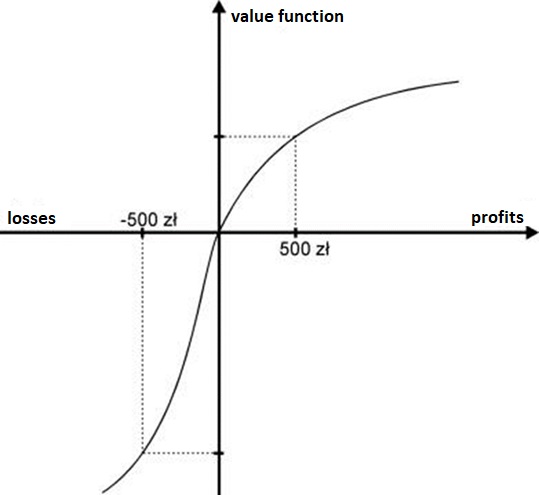Decision making – part 2
Context
In the previous section, we have already met Perspective Theory and the names of Kahnemann and Tversky. This was the first work in psychology to receive the Nobel Prize in Economics. Although, perhaps it should have been awarded to Niccolo Machiavelli... but about that in a moment.
Now imagine two situations:
- A dealer in a casino unexpectedly offers you the following game:
A. you receive 500pln for sure
B. the croupier tosses a coin; you receive 1000pln if the toss is an eagle, or nothing if it is a heads up.
Which do you choose? - A policeman stops you for speeding, but instead of a speeding ticket he offers you the following choice:
A. you must pay 500pln for sure
B. the policeman tosses a coin; you pay 1000pln if the toss is tails or nothing if it is head.
Now, what is your choice?
In theory, the expected value of each event is the same (500pln), but something has changed... the context has changed. In case 1 we are in a profit context where a guaranteed 500pln is of similar utility to an uncertain 1000, so we are more likely to choose (A) (unless we are gamblers by nature). In the context of losses (case 2) losing 500pln hurts so much that we are more likely to choose (B) to avoid the pain of losing 1000.
And this phenomenon is described by Prospect Theory, whose main thesis is as follows:
- People's choices are unstable and depend on the perspective (context) taken;
- Choices change depending on whether we act in the context of gains or in the context of losses;
- The utility function has a different shape in the gain zone than in the loss zone.

All right, but how does it relate to our business everyday life?
Well, translating from psychological-economic language to Polish, Perspective Theory says: distribute gains and combine losses. So, if we want to appreciate an employee, let's not give him a big raise right away, but two smaller ones; and let's remember that each next raise will have to be bigger than the previous one in order to achieve the same utility effect. And privately, if we want to please ourselves by buying a few nice gadgets, let's buy them at an interval, and not all at once at the same moment.
On the other hand, when we need to make layoffs, cut salaries and reduce benefits in a company, let's do it all together in one moment.
Because already Niccolo Machiavelli (1469-1527) said:
"Wrongs should be done all at once, so that the shorter they are suffered, the less they hurt, while benefits should be provided a little at a time so that they taste better".
PS. Unfortunately, Perspective Theory shows that the war in Ukraine may not end soon. Putin is now on the losing side, so further sanctions or losses of people and equipment do not hurt as much as the initial ones. At least that's what the theory says, let's hope it's wrong this time...